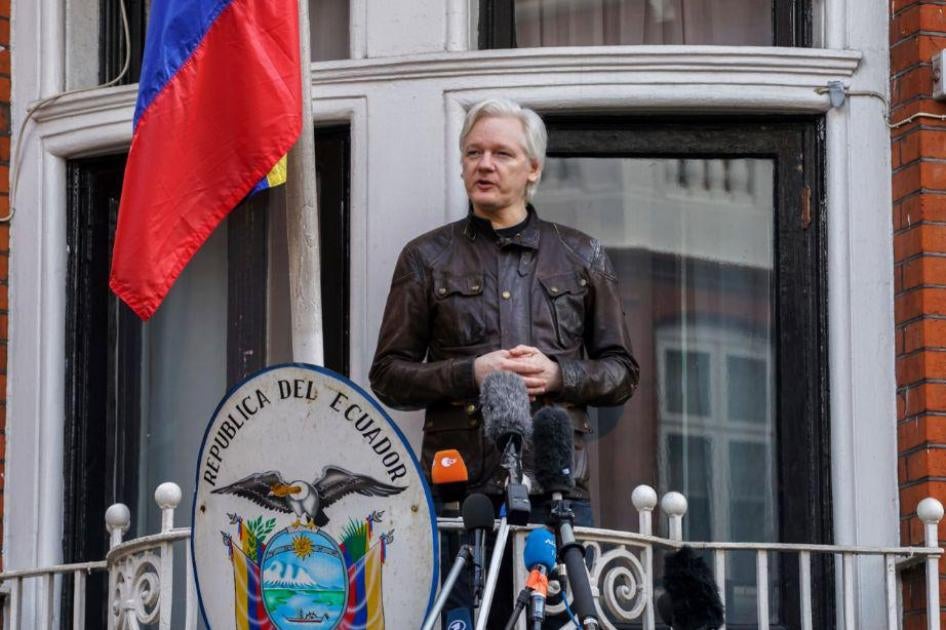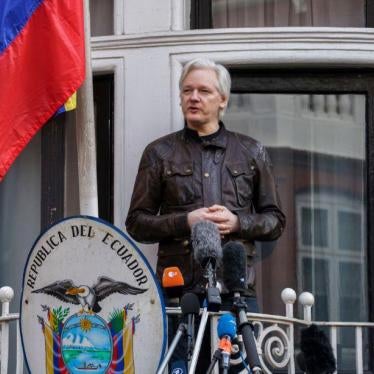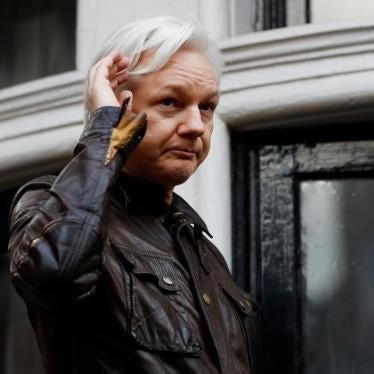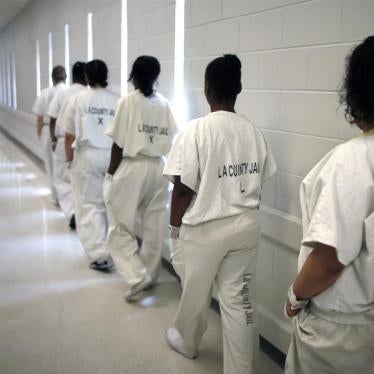In a stunning and unprecedented assault on press freedom, the Trump administration has issued an expanded indictment of Julian Assange for publishing classified information. Much of the information was of great public interest and importance, and other media investigated and republished it. The initial computer fraud charges against Assange had already raised concerns, but resorting to the sweeping terms of the US Espionage Act of 1917 has laid bare the government’s intention to put investigative journalism in the digital age on trial.
In announcing the new charges, the Justice Department seemed to hope for a muted response. It apparently counted on widespread antipathy towards Assange and the desire of many journalists to distance themselves from his alleged acts of rape and sexual assault, his efforts to influence the US presidential election, and his decision to fully expose the US cables on Wikileaks once they began to show up elsewhere after a Guardian editor published the password to the unredacted cache in a book.
But it counted wrong. Many prominent media organizations in the US and serious critics of Assange have condemned the indictment. They recognize that the question is not whether Assange is admirable or even a journalist. The question is whether what he did in publishing the US diplomatic cables is really much different than what national security journalists need to do to keep governments accountable in a free society.
Consider this recitation in the new indictment: Wikileaks said at one point it accepted “classified, censored or otherwise restricted material of political, diplomatic or ethical significance.” That’s just another way of saying they take information the government doesn’t want you to read but that is of public importance. Publishing secrets is sometimes the only way to get access to critically important information – such as facts on governmental abuse.
Or take the allegation that Wikileaks’s “most wanted” list of disclosures included the “interrogation procedures at Guantanamo Bay.” What serious news organization would hesitate to publish that? Or the allegation that Assange publicly announced his interest in such materials, and encouraged sources to leak them. Publishers these days advertise and encourage whistleblower leaks through confidential channels on their websites.
Julian Assange didn’t work for the US government and owe them a duty of confidentiality, nor did he break into systems nor pay for secrets like a spy. He accepted classified information from a government source, shared it with media partners, and gave it to the public – exactly the sorts of activities that are bound up in freedom of the press. Although the indictment points to examples where Assange’s publication of classified records exposed and might have endangered people named in them, the charges do not hinge on this detail. All the charges require is that he gave war-related documents classified at the relatively low level of “secret” to the general public – you and me – and that we are “not entitled to receive them.”
Make no mistake – this case isn’t about password “hacking” anymore. It’s about standard practices in investigative journalism and national security reporting. And in an administration that regularly describes critical media as an “enemy of the people,” it’s a direct assault on accountability that abusive governments everywhere will want to copy.









